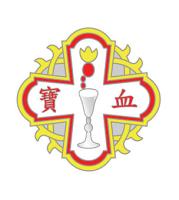| Language Policy |
The school puts great emphasis on creating a favourable language environment so as to develop students' biliterate and trilingual abilities. In junior classes, in addition to adopting English as the medium of instruction (MOI) in subjects like Mathematics and Science, other subjects are also taught in alignment with the objective of encouraging extended learning activities (ELA) in English in order to enhance students’ ability to use English. Furthermore, Putonghua is used to teach Chinese Language in S.1 and S.2 to improve students’ listening and speaking skills. In senior forms, Biology, Chemistry, Physics, Information And Communication Technology are also taught in English. For Mathematics topics like calculus and statistics, the MOI policy is adopted according to the English ability of groups or classes. Students can choose the language medium they use in public examinations according to their abilities. In addition, students’ interest in languages and biliterate and trilingual skills and abilities are further developed through co-curricular activities. Other activities with emphasis on readiness for communication are also conducted after school to strengthen students’ language proficiency and communication skills. |
| Learning and Teaching Strategies |
The school advocates constructivism, in which teachers and students construct knowledge collaboratively. Collaborative and cross-curriculum teaching is encouraged to enhance effective and joyful learning. In preparation for NSS, the curriculum design of Liberal Studies in junior forms is in alignment with the senior forms which emphasizes training basic abilities like language competency and critical thinking. A reading programme is another feature of the school. Other than extensive reading schemes, reading sharing sessions are conducted and English Reading Ambassadors are recruited to boost reading interest. |
| School-based curriculum |
1. Electives: 2X and 3X. School-based curriculum is adopted in the following subjects:<br> - STEAM <br> - Computer Literacy <br> - Moral Education<br> - Religious Studies and Ethics<br> 2. Curriculum highlights: Curriculum adaptation, differentiated teaching, multi-sensory approach, multi-intelligence strategies, cooperative learning and graded worksheets to cater for the diverse needs, interests and abilities of learners, Teaching & Learning in Information Technology and Development of Generic Skills. |
| Approach to Catering for Learner Diversity |
1. Whole School Approach to Catering for Students’ Diverse Learning Needs:<br> Teachers adopt diversified teaching methods and adapt learning materials in order to cater for the varied needs, interests and abilities of students.<br>2. Curriculum Tailoring and Adaptation for Learning and Assessment:<br> a. To launch one examination and one uniform test (Junior Secondary Only) in each term;<br> b. To adopt formative assessments and diversified assessment methods in some subjects. |
| Approach to Integrated Education |
Our school is committed to integrating Inclusive Education into our curriculum. Student Support Team is set up to plan, implement and review student support services to cater for the students’ need. The formative assessments are adopted to enhance students’ performance in learning. To accommodate students' special needs, special examination and homework arrangements are provided. There is also a variety of learning activities, including discussion, oral presentation, drawing, use of library, audio visual materials and information technology to cater for the diversified learning needs of the students. Through co-operating with different subject teachers, Student Support Team also provides Chinese Language and English Language after-school classes to develop students’ learning skills. Also, the school-based educational psychologists give advice about the curriculum and teaching. Besides, Learning Support Grant and other grants are used to provide different courses/programmes to cater for the diverse needs of students, e.g. outsourcing speech therapy services, social groups, recruiting counsellors to provide individual or group counselling, homework tutoring, and afternoon gathering to organize interest classes. To create a caring campus, there are various activities, such as ‘Big Sister Peer Programme’. We aim at helping students with special needs explore career paths and opportunities, such as interview workshops, universities and workplace visits, work placements, etc. School has set up a mechanism for the timely reporting of students’ progress and their learning effectiveness. |
| Education Support for Non-Chinese Speaking (NCS) Students |
|
| Home-School Co-operation |
The Parent-Teacher Association was established in 1995. Parents are our partners to enhance the effectiveness of learning and teaching and the character formation of the students. Parents participate actively in a range of activities such as family picnic, talk and cooking competition. In addition, workshops and talks are organised to meet the needs of the parents. The PTA periodicals are published bi-yearly to promote good communication between the school and the parents. |
| School Ethos |
The guiding principles of cultivating student' personal qualities are our school mottos and the two special virtues of the school sponsoring body: sacrifice and reconciliation. Values education is disseminated across the curricular of Moral Education, the Religious Studies and Ethics and Class Periods. The caring culture and positive thinking are emphasized throughout the secondary education. |
| School Development Plan |
Objective 1: To develop students' skills in independent learning and inquiry learning.<br>Objective 2: To nurture students' perseverance and resilience. |
| Teacher Professional Training and Development |
To encourage teachers to pursue academic excellence in teaching, we organize staff development days. Professional development and teaching effectiveness are enhanced among subject teachers through experience sharing sessions, collaborative lesson preparation and peer lesson observation. |
| Life-wide Learning |
Life-wide learning activities are organized by all school subjects, There are Student Union, PBSS Bulletin, Prudence House, Justice House, Fortitude House, Temperance House, Library Service Group, Community Youth Club, Road Safety Patrol, Hong Kong Red Cross, Girl Guides, Badminton Team, Volleyball Team, Table Tennis Team, Basketball Team, Swimming Team, Athletics Team, Drama Society and Backstage Support Team, Debate Team, School Choir and Dance Group. |
